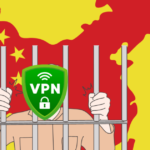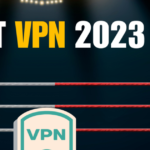In our big, connected globe, tons of folks lean on Virtual Private Networks (**VPNs**) to sneak a peek at blocked stuff online and boost their privacy. Yet, it’s not all sunshine and rainbows everywhere, ’cause in some spots around the world, hooking up with a VPN might land you in hot water, as it’s against the law.
Digging into why some places give VPNs the cold shoulder and spotlighting areas where it’s a big no-no offers a clearer picture of where the web is free and where it’s locked tight. This juicy bit will show you the ins and outs of internet freedom across the map, giving you the scoop on what’s what. Stick around, and you’ll uncover the behind-the-scenes on navigating online privacy like a pro!
At the time of this writing, here’s a list of countries where a VPN is either illegal or heavily restricted: China, Russia, Iran, Iraq, Belarus, Oman, Turkey, United Arab Emirates (UAE), North Korea, and Turkmenistan.
Two themes you’ll find in common here are that these restrictions hinder free speech and also compromise citizens’ privacy and access to information (including global networks). By highlighting these cases, we can start the valuable conversation about internet freedom and digital rights across the world.
Table of Contents
Countries with VPN Restrictions
Belarus is one country where VPN use is illegal. The government has been enforcing regulations since 2015, resulting in fines and penalties for individuals and companies providing VPN services.
In China, VPNs are subject to a gray area. While using VPNs is not explicitly banned, the government has set strict requirements for them. Only VPNs approved by the local authority are allowed, and unsurprisingly, these come with limitations.
Iraq also has imposed VPN restrictions, specifically due to concerns over terrorism and the use of VPNs by extremist groups. This ban has affected many citizens’ access to the free flow of information and uncensored internet content.
Iran restricts VPN use as well, with only state-sanctioned VPNs allowed. This heavily limits most citizens’ access to global content and platforms, and the government blocks many foreign websites and services.
North Korea has a state-controlled intranet, and any attempt to use VPNs or access international content is met with severe consequences. The regime imposes strict control over information and communication technologies. Of course, if you are currently in North Korea, you’re likely not even able to access this article.
Russia enacted laws in 2017 that allow only government-approved VPNs. Unauthorized VPN providers are considered illegal, ultimately limiting the ability to bypass geo-restrictions and access the free internet as we know it.
Turkey has been enforcing VPN restrictions since 2016. The government blocks specific VPN providers and has initiated censorship of various social media and news websites.
United Arab Emirates (UAE) penalizes citizens for using VPNs for illegal purposes, which include accessing blocked content. The fines can be very significant, resulting in potentially thousands of dollars.

China
Great Firewall of China
In China, the government has implemented a sophisticated system for online censorship, known as the Great Firewall of China. This system aggressively blocks access to a wide range of foreign websites and services, including popular platforms like Google, Facebook, and Twitter.
To bypass these restrictions, many individuals within China have turned to using VPNs to tunnel through the censorship and access blocked content.
Penalties for VPN Use
Although VPN use may be widespread, it is still technically illegal in China. The Chinese government has implemented strict regulations on VPN service providers, requiring them to obtain a license from the government to operate legally. Companies caught providing unauthorized VPN services can face fines and other penalties.
For individual users, the penalties for VPN use can vary depending on the situation. In some cases, Chinese authorities have issued warnings or even fines to individuals caught using VPNs to access restricted content. In more serious cases, individuals could potentially face criminal charges under China’s cybersecurity laws.
It’s important for individuals to be aware of the risks associated with using VPNs in China and to exercise caution when selecting a VPN service.
While some VPN providers claim to offer services that can bypass the Great Firewall, it is important to recognize that there are no guarantees, and using these services can potentially lead to legal consequences.
Russia
Roskomnadzor
Like other countries where VPN usage is illegal, the use of VPNs in Russia is tightly regulated by a governmental body called the Roskomnadzor. This agency is responsible for controlling and monitoring the dissemination of information within the country, and part of its mandate includes the power to block VPN services that do not comply with Russian laws.
In 2017, Russia passed a law prohibiting VPNs and other tools that allow users to access blocked content, making it illegal to use these services without government approval.
One of the primary reasons for the Russian government’s strict control over VPN usage is to filter online content that it deems inappropriate, such as politically sensitive material or websites promoting extremist ideologies. The VPN ban is also aimed at preventing citizens from accessing websites flagged for spreading “fake news” and/or misleading information.
Legal Consequences
Individuals caught using a VPN to bypass online restrictions in Russia may face legal consequences, which include fines and potentially imprisonment. The fines can range from 5,000 to 15,000 rubles (approximately $70 to $210) for individuals, with higher fines for companies that provide VPN services not in compliance with Russian laws.
Iran
National Information Network
In Iran, the use of VPNs is strictly regulated. Iran has developed its National Information Network (NIN) as a method to control and monitor internet traffic within the country. The NIN functions by routing Iranian users to a set of state-controlled, local servers through which their internet traffic is filtered and potentially censored.
Despite the government’s strict regulation of VPNs, many Iranians rely on these tools to bypass internet censorship and access blocked content. The Iranian government permits the use of approved, state-controlled VPNs to access the NIN, but unauthorized VPN providers are considered illegal.
Punishment for Unauthorized VPN Use
The unauthorized use of VPNs in Iran can lead to serious legal consequences. Punishments can range from hefty fines to imprisonment, depending on the severity of the offense. Using an unauthorized VPN may be penalized with:
- Fines on both users and businesses engaging in illegal activity
- Imprisonment of users caught bypassing internet filters
- Suspension of internet services for violating individuals and organizations
It’s vitally important for individuals in Iran to exercise caution and understand the risks associated with using unauthorized VPNs to access blocked content or bypass internet censorship.
North Korea
Tight Internet Controls
In North Korea, the government maintains strict control over internet access. The majority of the population does not have access to the World Wide Web whatseover, and those with access are limited to a heavily regulated intranet called Kwangmyong. This intranet only allows access to specific websites controlled by the government.
Due to these tight controls, the use of VPNs (Virtual Private Networks) is illegal in North Korea. These tools pose a significant threat to the North Korean regime’s control over information, which is why such tools are strictly prohibited.
Despite this ban, some individuals still attempt to use VPNs to access blocked content, often at great personal risk. Those caught using a VPN can face severe punishments, including imprisonment, or unfortunately even worse. The government closely monitors internet activities, making it incredibly risky for residents to use a VPN or any other method designed to bypass censorship.
The North Korean government’s control over citizen access to information poses a significant challenge to the global community, as it limits the flow of knowledge and suppresses dissent. The unfortunate bottom line in North Korea is that using a VPN or any other circumvention tool is extremely dangerous.

Impact on Citizens and Businesses
In countries where VPN usage is illegal, citizens and businesses face various challenges in accessing the global internet and securing their online communication.
For individuals, this restriction can result in limited access to information, news, and social platforms that are essential for personal growth and maintaining relationships.
Businesses operating in such environments also face significant limitations. They may encounter difficulties in collaborating with international partners, accessing global markets, or safeguarding their critical data. This can lead to a decrease in efficiency and competitiveness at a global level.
The lack of VPNs further exacerbates the privacy concerns of citizens in these countries where VPNs are illegal. Without the protection offered by VPNs, people become more vulnerable to surveillance, hacking, and potential data breaches. This may lead individuals to self-censor their online activities and discussions, curtailing their freedom of expression and potentially stifling the exchange of ideas and information.
Despite these challenges, some citizens and businesses resort to using VPNs illegally, either by accessing restricted VPN services or by utilizing other circumvention tools.
Again, while this practice may offer temporary relief from the imposed limitations, it comes with the risk of facing legal penalties – which may include fines, imprisonment, and/or additional surveillance measures.
Alternatives for Internet Privacy
In countries where VPNs are illegal, there are several alternative ways to maintain internet privacy. One popular option is using a proxy server. A proxy server acts as an intermediary between the user and the websites they visit, providing a layer of privacy. Users can choose from a variety of free or paid proxy servers, depending on their needs.
Another option is using the Tor network. The Tor network is a free, open-source software that allows users to browse the internet anonymously, by routing their traffic through a series of volunteer-operated servers around the world. When using Tor, the user’s location and browsing history remain hidden, allowing them to maintain a level of privacy on the internet.
For those concerned about their communications being intercepted or monitored, encrypted messaging apps are an excellent choice. These apps, such as Signal and Telegram, use end-to-end encryption, ensuring that only the intended recipients can read the messages sent. By using these apps, users can communicate privately, without the risk of third parties intercepting their conversations.
If the goal is to protect sensitive files and documents from prying eyes, a user can consider file encryption software. Programs such as VeraCrypt and AxCrypt enable users to encrypt their files, ensuring that even if they fall into the wrong hands, the contents remain inaccessible without the correct decryption key.
Here is a brief overview of the privacy alternatives mentioned above for Countries Where VPN is illegal:
- Proxy Servers
- Free or paid options are available
- Provides a layer of privacy by hiding the user’s IP address
- Tor Network
- Free, open-source software
- Anonymizes browsing by routing traffic through a series of servers
- Encrypted Messaging Apps
- Signal, Telegram, and others
- End-to-end encryption for private communications
- File Encryption Software
- VeraCrypt, AxCrypt, and others
- Protects sensitive files from unauthorized access
In conclusion, in Countries where VPN is illegal, there are plenty of alternatives for users to maintain their internet privacy. Proxy servers, the Tor network, encrypted messaging apps, and file encryption software are just a few examples of tools that can help users protect their privacy and communicate securely in the digital age.
- Amazon Email Phishing: How to Identify and Avoid Scams - June 10, 2025
- Malwarebytes vs McAfee: Decoding the Ultimate Antivirus Battle - June 10, 2025
- Best Antivirus for Windows 10: Expert Recommendations for 2023 - June 10, 2025










4 thoughts on “Countries Where VPN Is Illegal: A Comprehensive Guide”